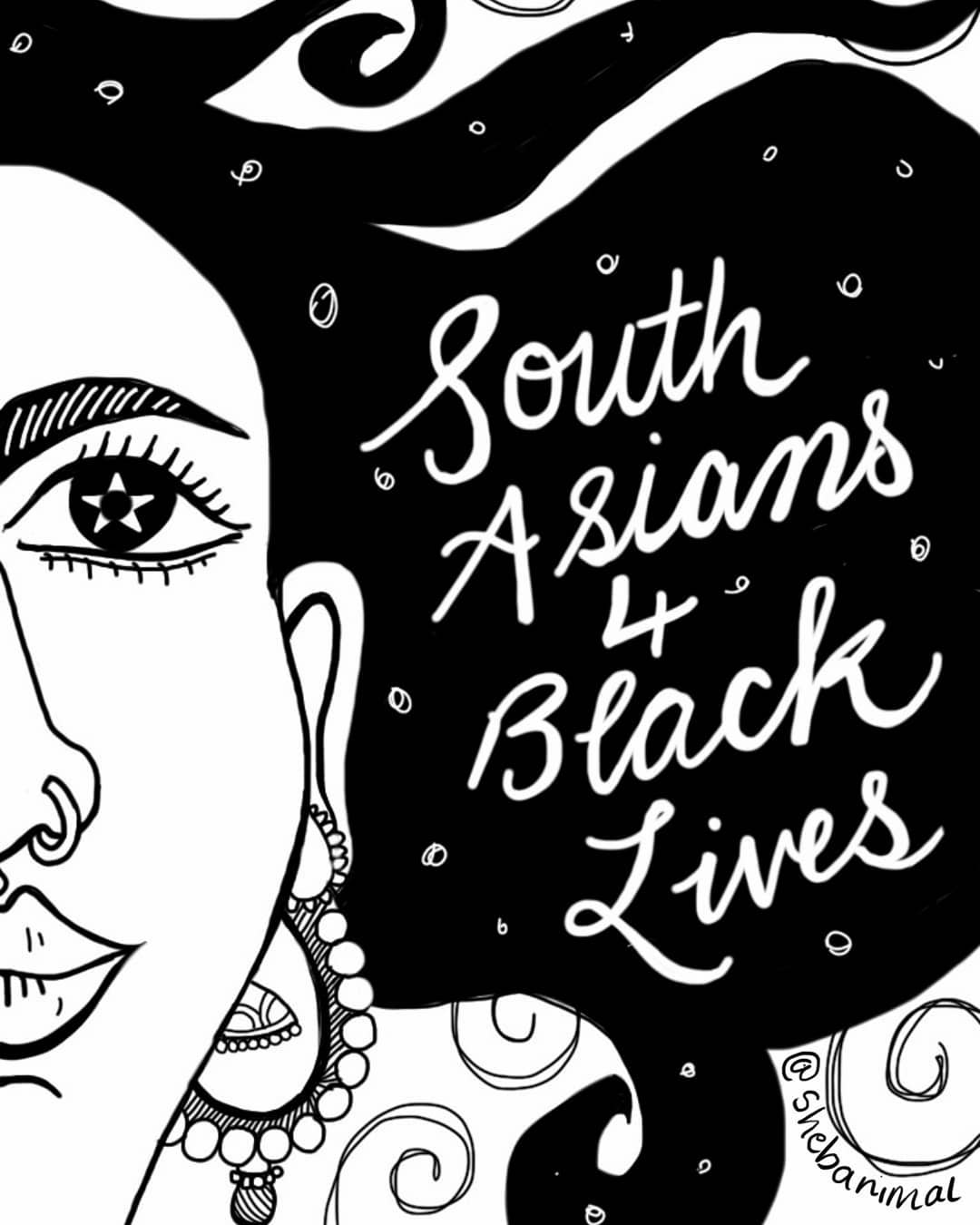Featured Artwork: Shebani Rao
![]()
If you’re a South Asian who holds conservative views because you have found a place of privilege in the unequal race towards the American Dream, you’ve been trapped in the same racial wedge that has divided people of colour for centuries. Just because you get to have the left-overs of the white man, while the black man is not invited to eat at all, does not mean that you will ever be one of them. When the tides of politics turn, a different minority is targeted and stigmatized, as seen with the attacks on innocent East Asian Americans due to the moral hysteria stemming from when COVID-19 was at its peak. Let’s not forget that when the World Trade Center was attacked on September 11, 2001, for the longest time, it was people who looked exactly like us who were being attacked and killed in the streets.
Let’s stop pretending that “model minorities” don’t exist as a systematic race hierarchy propagated by white supremacists to determine which coloured people are tolerable, and those they’re threatened by. The idea that South and East Asians achieve a higher socioeconomic success because of their “two-parent households” and “strong emphasis on education” only serves as a poorly veiled jab at the systematic inequality disadvantaging black people from navigating the same system.
We are lifted up by a system that intentionally pushes down our black friends, coworkers, and neighbours.
That systematic privilege for us turns into inequality and is the reason why black men, fathers, and sons are killed in the streets, their last strained words being “I can’t breathe” all while officers like Derek Chauvin, the murderer of George Floyd, press their knees into their necks until they fracture. George Floyd was killed in cold blood for allegedly possessing a counterfeit $20 bill, which turned out to be real, while the hedge fund manager who caused the 2008 financial crisis, leading to millions becoming homeless and jobless, has movies made about him. The definition of racial privilege is when the media is so quick to find something to label George Floyd, a black man, as a thug, while glorifying white people for their white-collar crimes.
That being said, the silence on issues like police brutality from South Asian people, who too often are seen profiting off of and appropriating black culture, all while harbouring anti-black sentiments, is shameful. It’s time we engaged in a conversation about the sell-out culture within South Asians, and call out the Bobby Jindals and Dinesh D’Souza’s of the community about just how much damage they’re doing by pretending police brutality and systematic racism don’t exist. Let’s call out the skin-lightening obsessed aunties, who hold onto their purses a little tighter when a black person sits next to them on public transport because they are buying into that innate fear that black people are violent and like to steal. Let’s especially call out South Asians who wear cornrows, and like to code-switch to ebonics, and think it’s okay to say the N-word, just because they’re also minorities. Where is your POC-solidarity now? Why is it that you’re suddenly “apolitical” and neutral when an innocent black person is killed but are quick to take to Twitter to speak up when someone says you smell like curry? Why will you take parts of their culture and make it your own, all while looking down on them because they’re darker skinned?
We must do better. As people who have that privilege, rather than pretending problems outside of our own way of life don’t exist, we must engage in those conversations about when and how we are complicit to white supremacy, and what we can do to help. While those conversations are uncomfortable to have, they are conversations that are necessary in uprooting the deeply ingrained racism within society. We must call out those racist family members from whom we have learned such a level of inherent anti-blackness. We must make active strides as allies to tackle the aggressions of white supremacy that black people in America face, like contacting the politicians who represent us to let them know what measures they can take to make a difference, and actually donating to the causes set up to help the families of victims of police brutality.
To support the family of George Floyd, donate to the George Floyd Memorial Fund, and the Minnesota Freedom Fund. As Martin Luther King Jr. said, “in the end, we will not remember the words of our enemies, but the silence of our friends.” Rest in power, George Floyd. #BlackLivesMatter


Leave a Reply